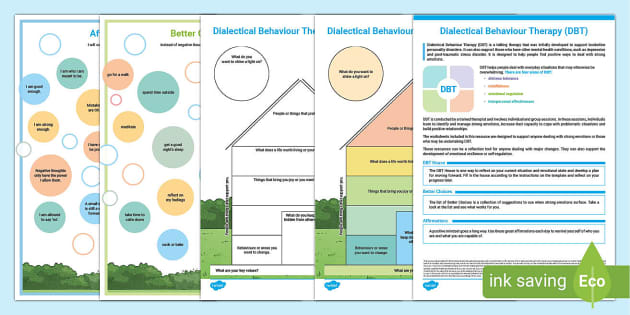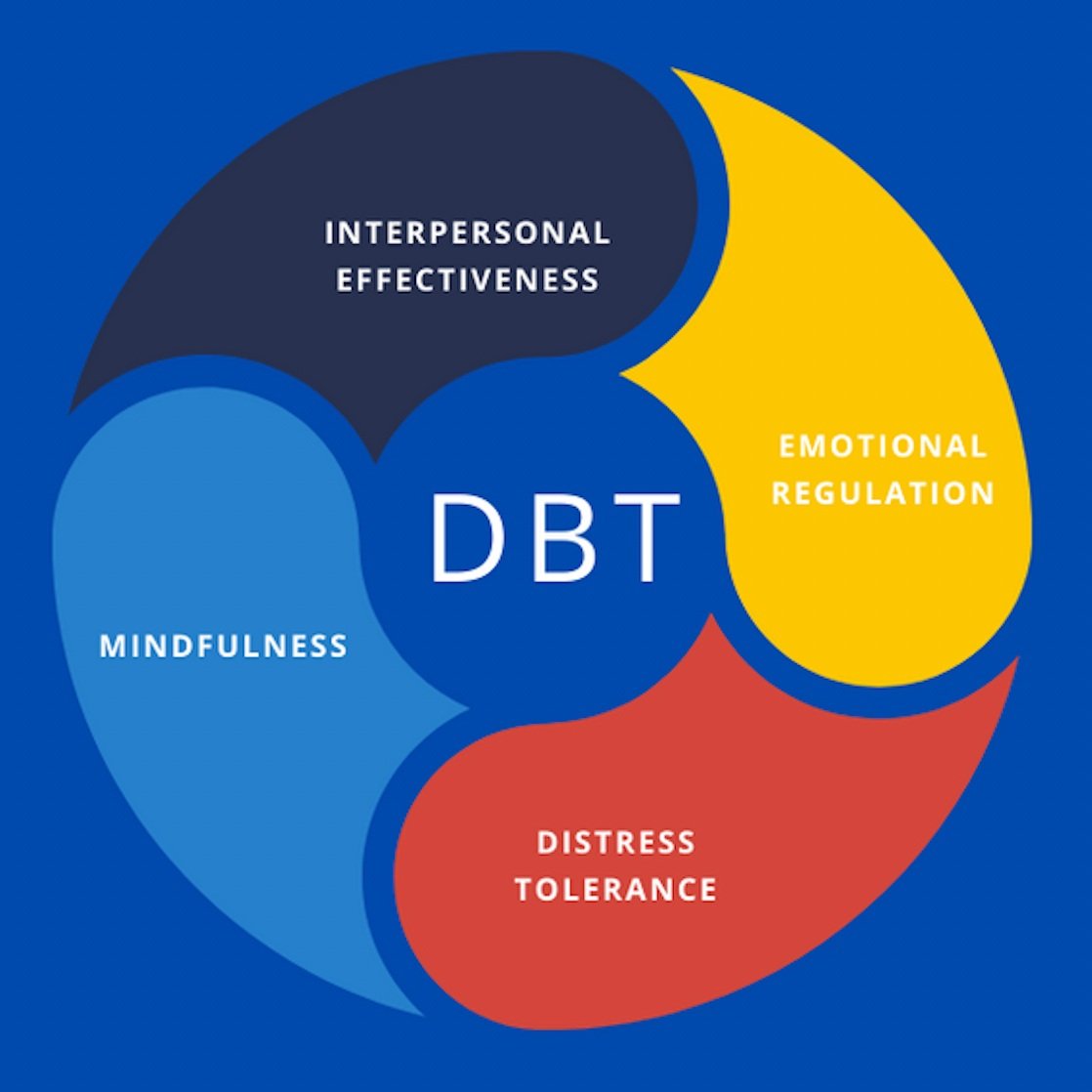Navigating Emotional Wellness: Study DBT London's Strategy
Navigating Emotional Wellness: Study DBT London's Strategy
Blog Article
Utilizing the Power of Dialectical Behavior Therapy (DBT) Solutions for Sustainable Psychological Equilibrium and Improved Relationships
In a globe where emotional wellness and preserving healthy and balanced connections are critical components of a meeting life, the use of Dialectical Practices Treatment (DBT) solutions has emerged as a sign of hope for lots of people. The evidence-based and structured method of DBT offers a path in the direction of sustainable psychological equilibrium and enhanced interactions with others. By focusing on core concepts, people can create crucial skills for managing feelings, boosting social performance, and cultivating mindfulness. Nonetheless, the real power of DBT exists not just in recognizing these principles yet in the practical application of strategies in life. As we browse the intricacies of human feelings and connections, taking advantage of the potential of DBT solutions ends up being a transformative trip worth discovering even more.

Understanding the Core Concepts of DBT
Dialectical Habits Therapy (DBT) is started upon a set of core principles that underpin its healing strategy to advertising emotional balance and mental wellness. Mindfulness is another core concept of DBT, focusing on being totally present in the moment without judgment.

Recognition is additionally integral to DBT, emphasizing the value of approving and recognizing one's experiences and feelings as legitimate. By incorporating these core principles right into therapy, DBT uses a comprehensive and reliable strategy to promoting emotional health and psychological strength.
Establishing Psychological Guideline Abilities
Psychological regulation abilities are crucial components of Dialectical Behavior Treatment (DBT) that enable people to efficiently handle their emotions and browse challenging scenarios with strength. These skills incorporate the capability to recognize and recognize one's emotions, endure distress, regulate intense sensations, and act according to individual values also despite emotional chaos. Developing emotional guideline skills entails learning mindfulness techniques to stay existing in the minute, comprehending the triggers that result in psychological dysregulation, and executing coping techniques to modulate psychological feedbacks.

Enhancing Interpersonal Efficiency
Improving communication skills and promoting meaningful connections with others are important facets of creating interpersonal performance within the framework of Dialectical Behavior Therapy (DBT) DBT educates individuals exactly how to communicate effectively, navigate interpersonal obstacles, and create methods for fixing conflicts in a useful manner.
One trick element of boosting social efficiency in DBT is learning to identify and take care of feelings in social communications. DBT London. By enhancing psychological understanding, people can react to others in a more understanding and understanding method. Furthermore, DBT highlights the relevance of practicing mindfulness in social connections, encouraging individuals to be existing in their communications and fully engage with others
Exercising Mindfulness Techniques
Developing a constant mindfulness technique is crucial for people undergoing Dialectical Behavior modification (DBT) to grow psychological law and improve their social efficiency. Mindfulness techniques, a core element of DBT, entail taking note of the here and now moment without judgment. Through mindfulness, go to website individuals can come to be much more familiar with their ideas, feelings, and physical sensations, allowing them to respond to circumstances with higher quality and control.
One key mindfulness method made use of in DBT is mindfulness reflection. This practice entails concentrating on the breath or a particular object while acknowledging and letting go of any kind of distracting thoughts. By including mindfulness reflection right into their day-to-day routine, individuals can train their minds to stay existing and minimize sensitivity to stress factors.
An additional important aspect of exercising mindfulness in DBT is the principle of radical acceptance. Radical acceptance entails totally welcoming index reality as it is, even when it is uncomfortable or tough. By accepting the here and now moment without judgment, individuals can reduce their suffering and include favorable change.
Using DBT Techniques in Day-to-day Live
Structure upon the foundation of mindfulness techniques such as meditation and radical acceptance, individuals can integrate DBT techniques into their day-to-days live to promote psychological balance and enhance their social skills. One efficient DBT technique is using dialectics, which urges people to locate the happy medium in between two opposing emotions or ideas. By exercising dialectics in daily communications, individuals can learn to validate their own sensations while also taking into consideration the point of views of others. One more important DBT ability for life is distress tolerance, which entails discovering how to handle intense feelings without turning to dangerous habits. This can be attained with methods such as self-soothing tasks, diversion techniques, or enhancing the minute. Furthermore, social effectiveness abilities taught in DBT can help people communicate their demands assertively, set borders, and keep healthy partnerships. By constantly using these DBT methods in day-to-day live, people can experience sustainable emotional equilibrium and boost their overall wellness.
Verdict

Psychological regulation abilities are crucial parts of Dialectical Actions Treatment (DBT) that make it possible for people to properly handle their feelings and browse difficult situations with durability.With DBT services, individuals can grow a deeper understanding of their emotions, recognize patterns of actions that contribute to psychological distress, and obtain useful tools to regulate their feelings constructively.Establishing a constant mindfulness practice is vital for individuals undertaking Dialectical Actions Treatment (DBT) to cultivate emotional law and improve their social efficiency.Building upon the structure of mindfulness methods such as reflection and extreme acceptance, people can integrate DBT techniques right into their day-to-day lives to site web promote emotional equilibrium and enhance their social skills. By understanding the core concepts of DBT, establishing emotional guideline skills, boosting interpersonal efficiency, practicing mindfulness methods, and applying DBT methods in daily life, people can experience substantial renovations in their general well-being and relationships.
Report this page